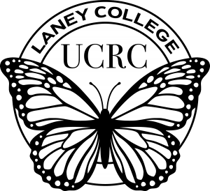Protects eligible young immigrants from deportation & allows them to work legally.

Our Mission
UCRC Services:
- AB540 / California Dream Act
- DACA Assistance; Helping Figuring out how to pay for college and what resources you qualify for, like DACA, Dream Act, and Scholarships
- Legal Consultations to Screen for Immigration Relief
- Family Based Petitions

Allows AB540 eligible students to apply for state aid & institutional scholarships.

UCRC Office
(510) 464-3140
laneyucrc@peralta.edu
UCRC Coordinator
Aissata Camara
acamara@peralta.edu
Hours
Monday - Thursday
9:00am -5:00pm
Location
Tower Building, Room 201 (T-201)
 Additional Resources
Additional Resources
Guide to Personal Finance and Support for Undocumented Immigrants
How to Build Credit as an Immigrant
How to Buy a House in the US as an Immigrant or Foreigner
Immigrants Rising: College Access Resources
California Student Aid Commission (CSAC)
Peralta Foundation Scholarships These scholarships are available to students enrolled in the Peralta Community College District.
AB540.com A comprehensive website with information for student, faculty, and staff. Very useful user-friendly site for anyone not familiar with AB540. Learn about preparing for college, college admissions, paying for college, and other useful information regarding current and potential AB540 students.
I Can Afford College A website by the California Community Colleges. This link will take you to the Dream Page
Immigration Legal Intake: Immigrants Rising’s Immigration Legal Intake Service is an online survey to help undocumented young people learn about possible immigration options.









.png?width=500&height=330&name=Laney%20College%20Enrollment%20(3).png)
-1.png?width=100&height=100&name=CTE%20(9)-1.png)